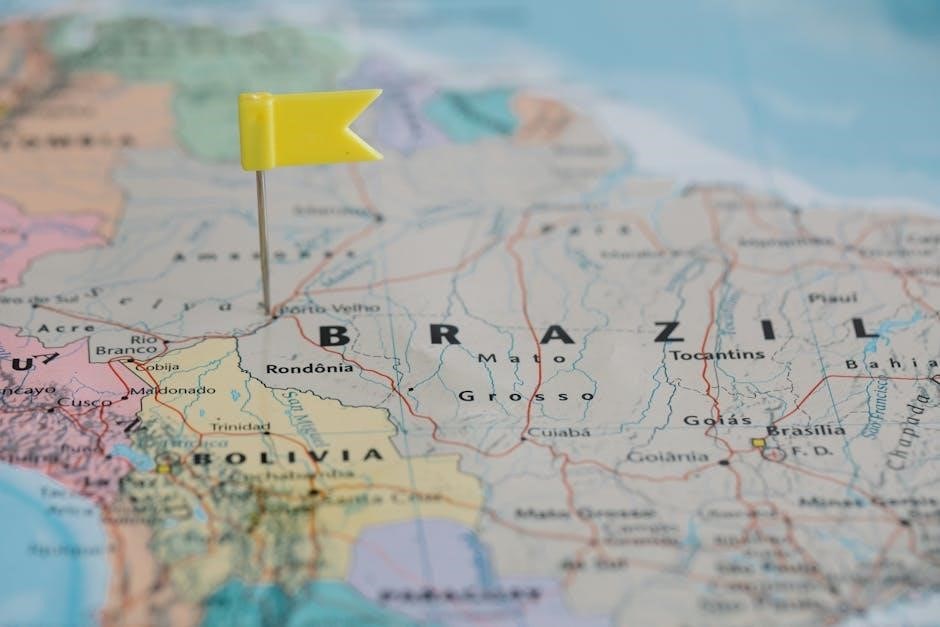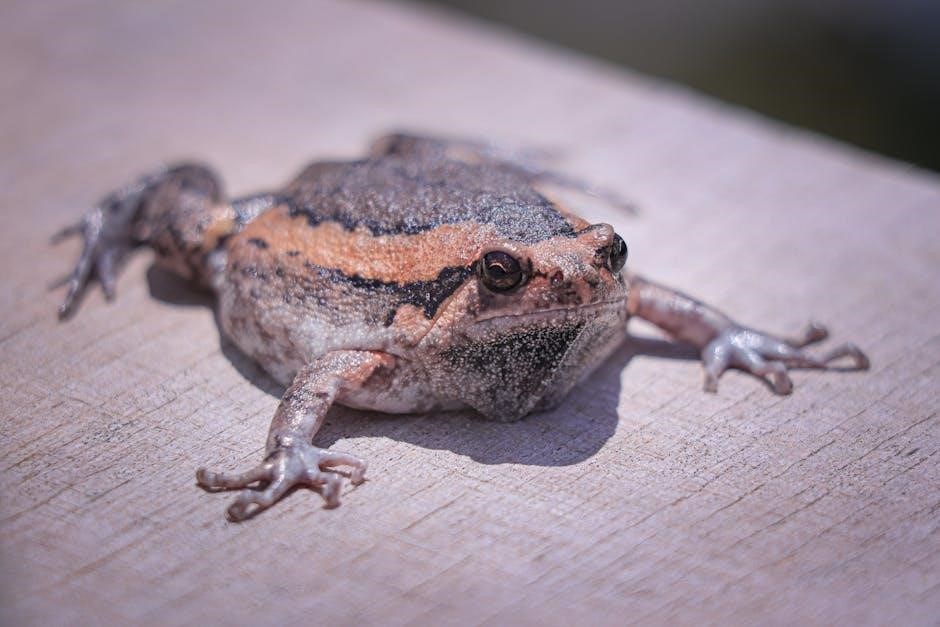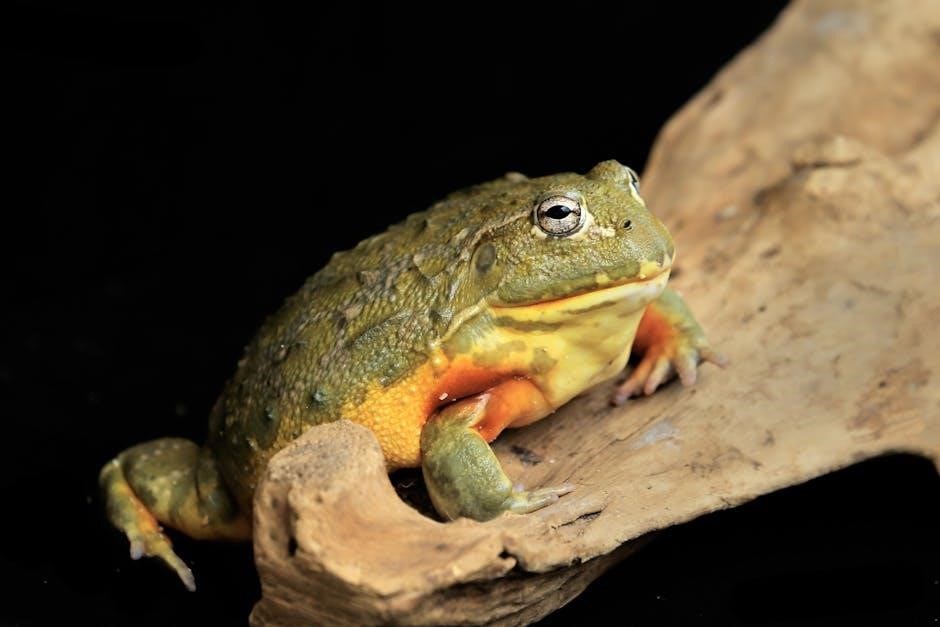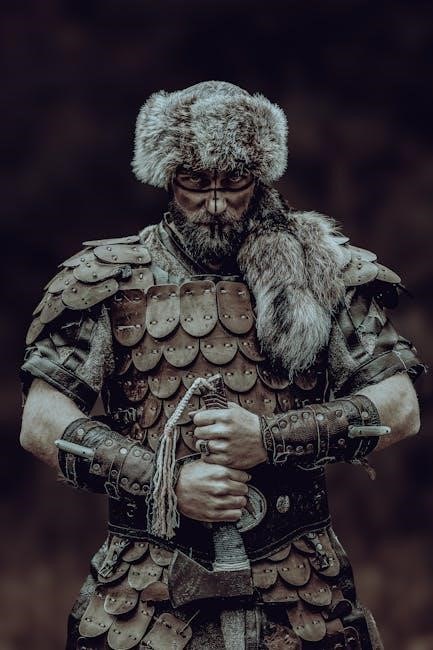EFT offers a promising avenue for wellbeing‚ gaining traction as a technique for addressing various challenges‚ from anxiety to chronic pain‚ and even habits.
Individuals are discovering its potential‚ with stories emerging of pain reduction and a return to work within days‚ showcasing its surprising effectiveness.
This practice‚ alongside established methods like meditation‚ provides another tool for stress relief‚ and is increasingly recognized for its positive impact on mental health.
With one in ten people in the UK experiencing anxiety‚ EFT presents a valuable option for symptom management‚ backed by multiple supportive research studies.
The technique’s ability to foster inner peace‚ as exemplified by individuals radiating joy‚ highlights its potential to unlock a more fulfilling and balanced life.
What is Emotional Freedom Techniques (EFT)?
Emotional Freedom Techniques (EFT)‚ often called “tapping‚” is a powerful self-help method rooted in the principles of ancient Chinese acupressure and modern psychology.
It involves stimulating specific meridian points on the body – primarily by gently tapping on them with your fingertips – while focusing on a specific issue or emotional challenge.
This unique combination is believed to disrupt the body’s energy system‚ releasing emotional blockages and reducing the intensity of negative feelings.
Essentially‚ EFT aims to restore balance to the body’s energy‚ allowing you to experience greater emotional freedom and wellbeing.
It’s described as a psychological acupressure technique‚ offering a non-invasive approach to addressing a wide range of concerns‚ including anxiety‚ stress‚ pain‚ and phobias.
Unlike traditional acupuncture‚ EFT doesn’t require needles; it’s a simple‚ accessible technique that can be learned and practiced independently.
Many find it a surprisingly effective tool for managing difficult emotions and improving overall mental and physical health‚ offering a pathway to self-healing and empowerment.
The core idea is that the cause of all negative emotions is a disruption in the body’s energy system‚ and tapping helps to resolve this disruption.
The History and Origins of Tapping
The roots of EFT trace back to the 1970s with Dr. Roger Callahan‚ a clinical psychologist‚ and his work with Thought Field Therapy (TFT).
Callahan discovered that tapping on specific meridian points while focusing on a distressing memory could significantly reduce emotional distress in a patient.
This initial breakthrough was inspired by his observation of acupressure and ancient Chinese medicine’s understanding of energy pathways‚ known as meridians.
Gary Craig‚ a student of Callahan‚ later simplified TFT‚ creating EFT in the early 1990s‚ making it more accessible and user-friendly.
Craig streamlined the process‚ reducing the number of tapping points and developing a more standardized protocol for self-application.
He freely shared EFT information online‚ contributing to its rapid spread and growing popularity worldwide.
The technique builds upon the principles of acupressure‚ which has been practiced for thousands of years in traditional Chinese medicine.
EFT’s evolution reflects a blend of ancient healing traditions and modern psychological insights‚ resulting in a powerful self-help tool.
How EFT Works: The Science Behind Tapping
EFT’s mechanism isn’t fully understood‚ but research suggests it influences the amygdala‚ the brain’s emotional center‚ reducing reactivity to stressors.
Tapping on meridian endpoints is believed to stimulate the vagus nerve‚ promoting relaxation and regulating the nervous system’s response to perceived threats.
This stimulation may decrease cortisol levels‚ the hormone associated with stress‚ and increase endorphins‚ natural mood boosters.
Some theories propose EFT disrupts the encoding of emotional memories‚ lessening their intensity and impact over time.
The combination of physical stimulation and focused attention is thought to create a neurochemical shift‚ promoting emotional regulation.
While the energetic basis of meridians remains debated‚ the physiological effects of tapping are increasingly supported by scientific studies.
Neuroimaging studies show changes in brain activity during and after EFT sessions‚ indicating its impact on emotional processing.
EFT appears to help “rewire” the brain’s response to emotional triggers‚ fostering a sense of calm and control.

The Basic Tapping Routine
The core of EFT involves sequentially tapping on specific body points while focusing on a particular issue‚ creating a pathway for emotional release.
This simple routine combines ancient Chinese acupressure with modern psychology‚ offering a readily accessible self-help tool for emotional wellbeing.
The Eight Tapping Points
EFT utilizes eight key tapping points‚ each corresponding to energy meridians in the body‚ facilitating emotional release when stimulated through gentle tapping.
These points are easily accessible and form the foundation of a basic EFT routine. Let’s explore each one:
- Karate Chop Point: Located on the fleshy side of the hand‚ between the wrist and the base of the little finger.
- Top of the Head: The crown of your head‚ where a baby’s soft spot would be.

- Eyebrow Point: The beginning of the eyebrow‚ closest to the nose.
- Side of the Eye: On the bony area on the side of the eye.
- Under the Eye: On the bony area under the eye‚ about an inch below the pupil.
- Under the Nose: The space between the bottom of the nose and the upper lip.
- Chin Point: The crease in the chin‚ directly below the lower lip.
- Collarbone Point: Where the collarbone meets the sternum‚ about an inch down and an inch to the side.
Consistent and gentle tapping on these points‚ while focusing on the issue‚ is crucial for experiencing the benefits of EFT.
The Karate Chop Point
The Karate Chop Point is a foundational element in EFT‚ serving as both a setup point and a consistent tapping location throughout a session.
Located on the fleshy side of the hand‚ it resides between your wrist and the base of your little finger – imagine where you’d make a karate chop motion.
This point is often used during the “setup” phase‚ where you verbalize a statement acknowledging the problem while continuously tapping.
The setup statement typically follows the format: “Even though I have this [problem]‚ I deeply and completely accept myself.”
Tapping the Karate Chop Point while repeating this statement helps to bring awareness to the issue and begin the process of emotional release.
It’s a comfortable and easily accessible point‚ making it ideal for beginners and a reliable anchor during more complex tapping sequences.
Consistent tapping here‚ combined with focused intention‚ prepares the energy system for addressing the specific emotional challenge.
The Top of the Head
The Top of the Head tapping point is a crucial component of a complete EFT sequence‚ contributing to the overall balancing of energy within the body.
To locate it‚ imagine a point at the very crown of your head‚ where a baby’s soft spot would be – it’s generally where a hat would sit.
This point is tapped with a gentle‚ firm pressure using your fingertips‚ typically all fingers together for broader coverage and impact.
Tapping here helps to release tension and blockages that may be held in the head‚ often associated with mental stress and overwhelm.
It’s considered a powerful point for clearing negative thought patterns and promoting a sense of calm and mental clarity.
Integrating the Top of the Head into your routine ensures a holistic approach‚ addressing both emotional and cognitive aspects of wellbeing.
Consistent tapping at this location can contribute to a feeling of groundedness and improved focus‚ enhancing the effectiveness of EFT.
The Eyebrow Point
The Eyebrow Point is a foundational element within the EFT tapping sequence‚ playing a vital role in releasing emotional blockages and promoting energy flow.
To find this point‚ locate the beginning of your eyebrow‚ on the side closest to your nose – it’s in the fleshy area right above the inner edge.
Use your index and middle fingers together to gently‚ yet firmly‚ tap this point‚ maintaining a consistent rhythm throughout the tapping process.
This location is often associated with releasing doubts‚ skepticism‚ and negative beliefs that may be hindering personal growth and wellbeing.
Tapping the Eyebrow Point can help to quiet the inner critic and foster a more positive and self-accepting mindset.
It’s a key point for addressing issues related to self-esteem‚ confidence‚ and overcoming limiting thought patterns.
Regularly incorporating this point into your EFT routine supports a balanced emotional state and enhances the overall effectiveness of the technique.
The Side of the Eye
The Side of the Eye point is a crucial component of the EFT tapping sequence‚ designed to address emotional imbalances and facilitate energy release.
To locate this point‚ gently place your index and middle fingers on the bony area on the side of your eye‚ approximately where the outer corner meets the eyebrow.
Apply a firm‚ yet comfortable tapping pressure‚ maintaining a steady rhythm as you work through your chosen EFT statement or issue.
This point is often linked to releasing feelings of overwhelm‚ anxiety‚ and past traumas that may be impacting present-day emotions.
Tapping here can help to dissolve emotional blockages related to seeing things clearly‚ both literally and figuratively.
It’s particularly effective for addressing issues surrounding relationships‚ perceptions‚ and letting go of limiting beliefs about oneself and others.
Consistent tapping on the Side of the Eye point supports emotional healing and promotes a sense of inner peace and clarity.
Under the Eye
The Under the Eye tapping point is a vital element within the EFT process‚ focused on releasing emotional distress and promoting a sense of calm.
To find this point‚ use your index and middle fingers to gently tap on the bony area directly beneath your eye‚ roughly in line with your pupil.
Maintain a moderate pressure while tapping‚ coordinating with your chosen EFT affirmation or the specific issue you’re addressing.
This point is frequently associated with releasing sadness‚ grief‚ and feelings of being overwhelmed by past experiences or current challenges.
Tapping here can help to alleviate emotional pain and facilitate the processing of difficult emotions‚ fostering emotional resilience.
It’s particularly beneficial for addressing issues related to self-worth‚ vulnerability‚ and releasing emotional baggage that hinders personal growth.
Regular tapping on the Under the Eye point supports emotional healing‚ encourages self-compassion‚ and promotes a more positive outlook on life.
Under the Nose
The tapping point located Under the Nose is a crucial component of the EFT sequence‚ often utilized to address feelings of rejection‚ shame‚ and self-doubt.
To locate this point‚ use your index finger to gently tap on the space between your nose and your upper lip‚ on the philtrum – the vertical groove above your mouth.
Apply a comfortable‚ moderate pressure while tapping‚ synchronizing it with your chosen EFT statement or the specific emotional challenge you’re working through;
This point is believed to be connected to releasing negative beliefs about oneself and fostering a greater sense of self-acceptance and worthiness.
Tapping here can help to dissolve limiting beliefs‚ reduce feelings of inadequacy‚ and promote a more positive self-image.
It’s particularly helpful for addressing issues related to past hurts‚ criticism‚ and the internalization of negative messages.
Consistent tapping on the Under the Nose point supports emotional liberation‚ encourages self-love‚ and cultivates a stronger sense of inner peace.
The Chin Point
The Chin Point is a vital tapping location in EFT‚ often employed to address feelings of confusion‚ helplessness‚ and a lack of control over one’s life.
To find this point‚ gently tap with your index and middle fingers on the crease directly under your chin‚ in the indentation where your lower lip meets your jawbone.
Maintain a comfortable pressure while tapping‚ coordinating it with your chosen EFT phrase or the specific emotional issue you are focusing on releasing.
This point is thought to be linked to releasing feelings of being overwhelmed‚ stuck‚ or unable to make decisions effectively.
Tapping here can help to clarify thoughts‚ restore a sense of agency‚ and empower you to take positive action towards your goals.
It’s particularly beneficial for addressing situations where you feel powerless‚ indecisive‚ or burdened by responsibility.
Regular tapping on the Chin Point supports emotional clarity‚ encourages self-empowerment‚ and fosters a stronger sense of inner resilience and control.
The Collarbone Point
The Collarbone Point is a foundational tapping location in EFT‚ serving as a powerful anchor for releasing deeply held emotional blockages and promoting overall wellbeing.
To locate this point‚ find the junction where your collarbone meets your sternum – the bony area at the top of your breastbone.
Use your index and middle fingers to gently tap on this spot‚ maintaining a comfortable pressure synchronized with your chosen EFT affirmation or issue.
This point is believed to be connected to releasing feelings of sadness‚ grief‚ and emotional pain‚ offering a pathway to healing and acceptance.
Tapping here can help to soothe emotional distress‚ release pent-up energy‚ and create a sense of spaciousness within the body and mind.

It’s particularly helpful for addressing past traumas‚ unresolved grief‚ or feelings of heartbreak and loss.
Consistent tapping on the Collarbone Point supports emotional release‚ fosters self-compassion‚ and encourages a deeper connection to your inner emotional landscape.

Addressing Specific Issues with EFT
EFT demonstrates versatility‚ effectively tackling issues like anxiety‚ stress‚ phobias‚ trauma‚ and even physical pain‚ offering targeted relief and promoting emotional resilience.
Its application extends to managing eating issues and supporting those seeking to overcome habits like smoking‚ showcasing its broad therapeutic potential.
By focusing intention during tapping‚ individuals can address specific challenges‚ fostering healing and a greater sense of control over their wellbeing.
Tapping for Anxiety and Stress
Anxiety and stress are pervasive issues‚ affecting a significant portion of the population – notably‚ one in ten people in the UK experience an anxiety disorder at any given time.
Emotional Freedom Techniques (EFT) offers a readily accessible and increasingly recognized method for tackling these challenging symptoms‚ providing a potential pathway to relief.
The core principle involves tapping on specific meridian points while focusing on the anxious feelings or stressful thoughts‚ disrupting the body’s stress response.
This process can help to calm the nervous system‚ reduce cortisol levels‚ and promote a sense of emotional equilibrium‚ offering a non-invasive alternative or complement to traditional therapies.
Individuals report experiencing a noticeable decrease in anxiety symptoms after consistent EFT practice‚ finding it empowers them to manage stressful situations more effectively.
It’s a technique that can be utilized in the moment during a panic attack or incorporated into a daily routine as a preventative measure against building stress.
EFT doesn’t necessarily eliminate stressors‚ but it changes your relationship to them‚ allowing for a more grounded and resilient response.
Tapping for Pain Management
Chronic and acute pain significantly impacts quality of life‚ and finding effective‚ non-pharmaceutical approaches is a priority for many seeking relief.
Emotional Freedom Techniques (EFT) is emerging as a promising tool in pain management‚ offering a complementary therapy to conventional medical treatments.
The technique addresses the emotional component often intertwined with physical pain‚ recognizing that unresolved emotional issues can exacerbate or even create physical sensations.
By tapping on specific meridian points while focusing on the pain and associated feelings‚ EFT aims to release energetic blockages contributing to discomfort.
Remarkably‚ individuals have reported a gradual diminishing of pain‚ even returning to work within days after incorporating EFT into their self-care routine.
This suggests EFT isn’t simply masking symptoms‚ but potentially addressing underlying causes and promoting the body’s natural healing processes.
It’s important to note that EFT is not a replacement for medical care‚ but a valuable adjunct that can empower individuals to actively participate in their pain management journey.
Tapping for Phobias and Fears
Phobias and fears can be incredibly debilitating‚ significantly limiting an individual’s experiences and overall wellbeing. Traditional approaches often involve prolonged exposure therapy‚ which can be challenging.
Emotional Freedom Techniques (EFT) offers a gentler‚ yet powerful‚ alternative for addressing these deeply rooted anxieties‚ providing a sense of control and empowerment.
The technique works by tapping on specific meridian points while focusing on the feared object or situation‚ and the associated emotional distress.
This process helps to desensitize the emotional charge linked to the phobia‚ reducing its intensity and impact over time.
EFT acknowledges that fears are often linked to past experiences or traumas‚ and aims to release the energetic blockages perpetuating the anxiety.
By repeatedly tapping and reframing thoughts‚ individuals can gradually diminish the fear response and cultivate a sense of calm and confidence.
It’s a self-help tool that can be used discreetly and effectively‚ offering relief from the grip of phobias and fears‚ and promoting a more fulfilling life.
Tapping for Trauma and PTSD
Trauma and Post-Traumatic Stress Disorder (PTSD) present profound challenges‚ often leaving individuals feeling overwhelmed‚ disconnected‚ and burdened by distressing memories.

While conventional therapies are essential‚ Emotional Freedom Techniques (EFT) can serve as a valuable complementary approach‚ offering a pathway towards healing and emotional regulation.
EFT helps to address the energetic disturbances associated with traumatic experiences‚ gently releasing the emotional intensity stored within the body.
The tapping process allows individuals to access and process traumatic memories in a safe and controlled manner‚ reducing feelings of overwhelm and anxiety.
It’s crucial to approach trauma with sensitivity and‚ ideally‚ under the guidance of a qualified EFT practitioner‚ especially when dealing with complex PTSD.
Techniques like the “Movie Technique” can be particularly helpful‚ allowing individuals to emotionally distance themselves from the traumatic event while processing it.
EFT empowers individuals to reclaim control over their emotional responses‚ fostering resilience and promoting a sense of safety and wellbeing in the aftermath of trauma.

Advanced Tapping Techniques
Beyond the basics‚ techniques like the Movie Technique and Tell the Story method deepen EFT’s impact‚ addressing complex issues with nuanced approaches.
Surrogate tapping offers a unique way to work with others‚ extending the benefits of EFT to those unable to tap for themselves‚ fostering collective healing.
The Movie Technique for Trauma
The Movie Technique is a powerful advanced EFT method specifically designed for processing traumatic memories. It allows individuals to engage with distressing experiences at a safe emotional distance‚ minimizing overwhelm.
Imagine watching a movie of the traumatic event unfold on a screen. You are the observer‚ not the participant. As you watch each scene‚ tap through the EFT sequence‚ focusing on the emotions that arise as if you were experiencing them‚ but knowing you are safe.
Start with a brief‚ less intense clip‚ then gradually increase the detail and emotional intensity as you feel ready. This gradual exposure helps desensitize the memory without triggering a full-blown emotional crisis. It’s crucial to pause and self-soothe if feelings become too intense.
Focus on the sensations and emotions as they arise during each scene‚ naming them specifically. For example‚ “Fear in my chest‚” or “Sadness in my throat.” Continue tapping until the emotional charge of the scene diminishes. Repeat this process for each segment of the traumatic event‚ working through the entire “movie” at your own pace.
This technique is best utilized with the guidance of a qualified EFT practitioner‚ especially when dealing with complex or severe trauma‚ ensuring a safe and supportive environment.
The Tell the Story Technique
The Tell the Story Technique is a core EFT process for addressing emotional issues by fully recounting a distressing experience. It’s a method of systematically working through the narrative of an event‚ tapping through the EFT points as you describe it.
Begin by identifying the core issue or event you want to address. Then‚ start telling the story from the beginning‚ detailing what happened‚ what you saw‚ heard‚ felt‚ and thought. Be as specific as possible‚ including sensory details.
As you narrate‚ tap through all the EFT points‚ focusing on the most distressing aspect of the story at each moment. Notice the emotions that arise and acknowledge them without judgment. Continue tapping until the intensity of the emotion decreases.
Repeat the story multiple times‚ each time noticing if the emotional charge has lessened. You may find that new aspects of the story emerge‚ requiring further tapping. The goal is to process the event until it feels less overwhelming and more manageable.
This technique can be incredibly powerful for releasing trapped emotions and gaining a new perspective on past experiences‚ promoting emotional freedom and healing.
Using Surrogate Tapping
Surrogate Tapping involves one person tapping on behalf of another who is unable to tap for themselves‚ or finds it difficult to articulate their feelings. This is particularly useful for infants‚ animals‚ or individuals experiencing overwhelming trauma.
The surrogate acts as a representative‚ tuning into the energy of the person they are tapping for; This requires a strong intention to help and a clear focus on the issue at hand. The surrogate verbalizes the problem as if it were their own‚ using “I” statements.
While tapping‚ the surrogate imagines the person they are helping and focuses on their emotional state. It’s crucial to maintain empathy and sensitivity throughout the process. Regularly check in with the individual (if possible) to gauge their response.
Surrogate tapping can be effective in addressing a wide range of issues‚ from emotional distress to physical discomfort. It’s a compassionate approach that extends the benefits of EFT to those who may otherwise be unable to access them.
Remember‚ ethical considerations are paramount; always obtain consent when possible and respect the individual’s boundaries.

Integrating EFT into Daily Life
EFT seamlessly blends into routines‚ offering consistent self-care and emotional regulation. Combining it with therapies amplifies benefits‚ creating a holistic wellness approach.
Regular practice cultivates resilience‚ while readily available resources deepen understanding and skill. EFT empowers proactive wellbeing‚ fostering lasting positive change.

This technique isn’t a one-time fix‚ but a tool for navigating life’s challenges with greater ease and emotional freedom‚ enhancing overall quality of life.
Self-Care and Regular Tapping Practice
Establishing a consistent EFT practice is paramount for sustained wellbeing‚ transforming it from a reactive tool to a proactive self-care ritual. Think of tapping as emotional maintenance‚ akin to brushing your teeth – a small‚ daily investment yielding significant long-term benefits.
Begin with short‚ focused sessions‚ perhaps 5-10 minutes daily‚ gradually increasing duration as comfort grows. Integrate tapping into existing routines; for example‚ tap while commuting‚ during a lunch break‚ or before bed. This normalizes the practice and ensures consistency.
Don’t underestimate the power of preventative tapping. Address daily stressors before they escalate into overwhelming anxiety or pain. A quick round of tapping can diffuse tension and promote a sense of calm.
Experiment with different tapping sequences and affirmations to discover what resonates most effectively. Listen to your body and adjust the practice accordingly. Self-compassion is key; there will be days when tapping feels more beneficial than others‚ and that’s perfectly okay.
Remember‚ EFT is a skill that develops with practice. The more you tap‚ the more intuitive and effective it becomes‚ empowering you to navigate life’s challenges with greater resilience and emotional freedom.
Combining EFT with Other Therapies
Emotional Freedom Techniques isn’t intended as a replacement for conventional medical or psychological treatment‚ but rather as a powerful complementary therapy. Its versatility allows for seamless integration with a wide range of healing modalities‚ enhancing their effectiveness.
Consider pairing EFT with talk therapy‚ such as Cognitive Behavioral Therapy (CBT)‚ to address underlying beliefs and patterns while simultaneously releasing emotional charge. This combined approach can accelerate progress and deepen insights.
For physical ailments‚ EFT can be used alongside physiotherapy or chiropractic care to manage pain and promote healing. Addressing the emotional component of pain often unlocks physical relief that traditional methods alone may not achieve.
Mindfulness practices‚ like meditation and yoga‚ synergize beautifully with EFT. The calming effects of both techniques amplify each other‚ fostering a greater sense of inner peace and self-awareness.
Always inform your healthcare providers about your use of EFT‚ ensuring a collaborative and integrated approach to your overall wellbeing. A holistic perspective‚ combining the best of both worlds‚ often yields the most profound and lasting results.
Resources for Learning More About EFT
Embarking on your EFT journey requires reliable resources to ensure proper understanding and application. Numerous avenues exist for deepening your knowledge and skills in this transformative technique.
Several websites offer introductory articles‚ videos‚ and guided tapping scripts. Look for sites created by certified EFT practitioners to guarantee accuracy and quality. Online courses‚ ranging from beginner to advanced levels‚ provide structured learning experiences.
Consider exploring books authored by leading EFT experts‚ offering in-depth explanations of the theory and practical applications. Workshops and in-person training sessions provide hands-on experience and personalized guidance.
The Association of Meridian Energy Therapists (AMET) is a valuable resource for finding qualified practitioners and accessing professional training programs. Their website offers a directory and information on certification standards.
Remember to approach information critically and prioritize learning from reputable sources. Consistent practice and ongoing education are key to unlocking the full potential of EFT for yourself and others.

Potential Benefits and Limitations of EFT
EFT demonstrates promising results for mental and physical wellbeing‚ addressing issues like eating disorders‚ chronic pain‚ and smoking cessation‚ yet isn’t a universal cure.
While research supports its benefits‚ individual experiences vary‚ and professional guidance is crucial for complex trauma or severe mental health conditions.
It’s a complementary technique‚ not a replacement for conventional medical or psychological treatment‚ requiring mindful application and realistic expectations.
Proven Benefits Supported by Research
Numerous studies are beginning to validate the effectiveness of Emotional Freedom Techniques (EFT)‚ moving it beyond anecdotal evidence towards a scientifically recognized therapeutic approach.
Research indicates significant benefits in reducing anxiety symptoms‚ with studies showing measurable decreases in cortisol levels – the body’s primary stress hormone – following EFT sessions.
For individuals grappling with anxiety disorders‚ EFT offers a potentially powerful tool for symptom management‚ providing relief where traditional methods may fall short.
Beyond anxiety‚ investigations reveal EFT’s efficacy in pain management‚ demonstrating a capacity to diminish both physical discomfort and the emotional distress associated with chronic pain conditions.
Furthermore‚ EFT has shown promise in addressing the complex challenges of trauma and PTSD‚ offering a gentle yet effective method for processing traumatic memories and reducing associated emotional reactivity.
The technique’s ability to influence physiological markers of stress‚ coupled with positive clinical outcomes‚ suggests a tangible impact on both mental and physical health‚ solidifying its position as a valuable therapeutic intervention.
Continued research is expanding our understanding of EFT’s mechanisms and broadening its applications‚ paving the way for wider acceptance and integration into mainstream healthcare.
When to Seek Professional Guidance
While EFT is generally considered a safe self-help technique‚ certain situations warrant seeking guidance from a qualified healthcare professional or certified EFT practitioner.
If you are experiencing severe trauma‚ PTSD‚ or complex mental health conditions‚ it’s crucial to work with a trained therapist who can provide tailored support and ensure safe processing of difficult emotions.
EFT should not be considered a replacement for conventional medical treatment or psychotherapy; rather‚ it can be a valuable complementary therapy when used in conjunction with professional care.
Individuals with pre-existing medical conditions‚ particularly those affecting mental health‚ should consult their doctor before incorporating EFT into their wellness routine.
If you find that EFT exacerbates your symptoms or triggers intense emotional distress‚ discontinue use and seek professional help immediately.
A skilled practitioner can help you navigate challenging emotional terrain‚ personalize your tapping sequences‚ and address underlying issues that may require more intensive intervention.
Remember‚ prioritizing your wellbeing and seeking appropriate support is essential for a safe and effective EFT experience.



































































































